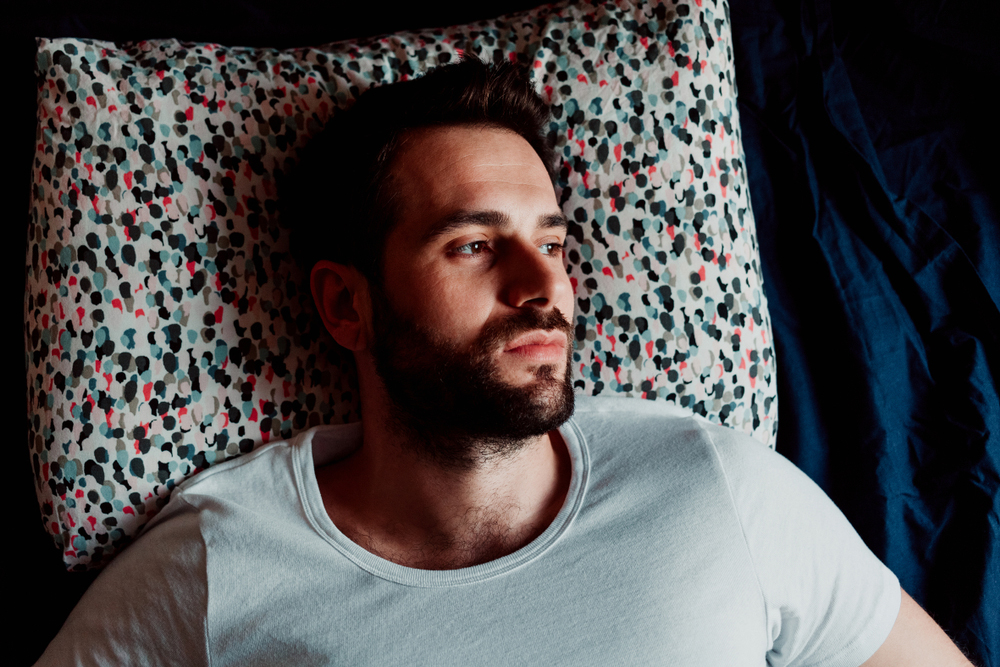Many people use alcohol to relax and unwind, but if you have anxiety, drinking can paradoxically increase your symptoms, bringing a wave of dread known as “hangxiety.”
This portmanteau of “hangover” and “anxiety” perfectly describes the unease, regret, and emotional turmoil that can follow a night of binge drinking. Though the physical symptoms of a hangover may fade within a few hours, the mental and emotional effects of hangxiety can linger longer, reinforcing a destructive cycle that keeps you trapped in problematic drinking patterns.
What Causes Hangxiety?
While a minor part of hangxiety may be regretting things you said or did while you were under the influence, a complex interplay of psychological and physiological reactions can leave you feeling on edge, ashamed, or even panicked the next day.
1. Psychological Withdrawal
Alcohol floods your brain with dopamine, a neurotransmitter responsible for pleasure and relaxation. However, when dopamine levels crash, it will lead to feelings of emptiness, unease, and emotional discomfort. This sudden drop in mood is like a mini withdrawal, where your body craves the temporary euphoria alcohol provided.
2. Exacerbation of Existing Anxiety
If you already struggle with social anxiety or generalized anxiety, alcohol may temporarily mask these feelings by suppressing your central nervous system. Unfortunately, once the alcohol wears off, your anxiety may return even more intensely. This rebound effect makes hangxiety especially distressing for those who use alcohol as a coping mechanism.
3. Physical Symptoms That Intensify Anxiety
The physical aftereffects of drinking – such as dehydration, headaches, electrolyte imbalances, and an increased heart rate – can trigger or worsen anxiety. Your body is in a heightened state of stress, making it more likely that you’ll feel anxious, panicked, or emotionally drained.
Symptoms of Hangxiety
Hangxiety manifests differently for everyone, but some characteristics are nearly universal.
- Emotional distress: Feelings of dread, guilt, or embarrassment about what happened the night before.
- Increased heart rate and sweating: Physical discomfort that can mimic anxiety symptoms, making them worse.
- Panic attacks: In severe cases, hangxiety can trigger overwhelming fear and physical symptoms that may feel like a heart attack.
- Fatigue and brain fog: Alcohol disrupts restful sleep, leaving you feeling emotionally and physically drained.
For some, hangxiety is a mild annoyance – a few hours of uneasiness that pass with time. But for others, it can be crippling, leaving them trapped in a cycle of drinking to relieve anxiety, only to feel worse the next day.
Breaking the Cycle of Hangxiety
If hangxiety has become a frequent occurrence in your life, it’s time to reevaluate your relationship with alcohol. Here are ways to break the cycle.
- Practice moderation: Limiting your alcohol intake and ending a binge drinking habit can significantly reduce the severity of hangxiety. Set boundaries around when and how much you drink to prevent emotional and physical distress the next day.
- Prioritize hydration and nutrition: Alcohol dehydrates you and depletes essential nutrients, making your anxiety worse. Drinking plenty of water, replenishing electrolytes, and eating nutrient-dense foods can ease hangxiety’s intensity.
- Recognize the problem: If you drink to relieve stress or social discomfort, acknowledge this pattern. Therapy and support groups can provide healthier coping mechanisms for dealing with anxiety without relying on alcohol.
- Consider professional help: It may be time to seek professional treatment if alcohol adversely affects your mental health, relationships, or daily life. At Legacy Texas, we offer dual-diagnosis treatment to address alcohol use and underlying anxiety, providing a structured plan for ending the cycle of drinking and hangxiety.
You Don’t Have to Live With Hangxiety
Many men self-medicate stress and social discomfort with drinking, unaware that it’s worsening their anxiety in the long run. Hangxiety is a warning sign that your alcohol use affects your well-being, and that it’s time for a change.
At Legacy Texas, we help men regain control of their mental, emotional, and physical health by providing a conducive atmosphere for recovery. Contact us today to learn how we can help you break the cycle and build a healthier, more fulfilling life.

